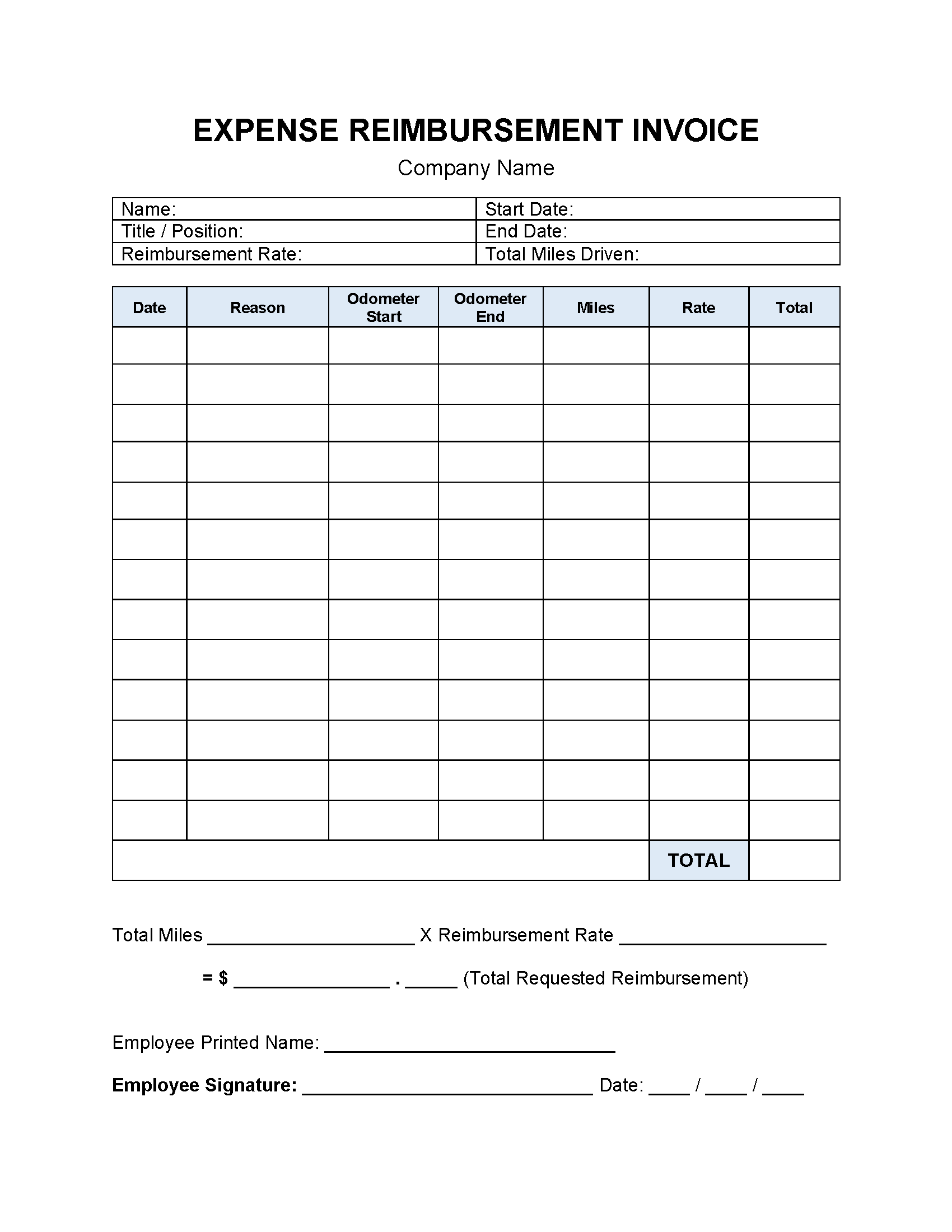A mileage reimbursement invoice is given by a business or charity employee to their employer for the purpose of collecting compensation for the miles driven to a location required for work. Destinations that are often reimbursable include conventions, client visits, work-specific errands, to-and-from airports (for business travel), driving to take clients to dinners/lunches, and non-permanent job sites (under one year), and essentially any other driving that is done for the purpose of the employer. Expense Reimbursement Invoice – For any re-payment for company expenses (ex. travel, lodging, etc.).
How to Request Mileage Reimbursement
To correctly invoice an employer for the mileage driven on a personal vehicle, the worker will need to learn their employer’s system for mileage reimbursement. Overall, the procedure generally follows the following steps: Step 1 – Learn exactly what types of trips the employer permits mileage reimbursement for. For some, reimbursement will only be for client visits and work-related errands. For others, it may include anything remotely related to the employee’s job. Step 2 – Immediately before beginning the trip, take a picture or write-down the mileage displayed on the odometer. This value should be recorded on the invoice or in a mileage log, such as this mileage log template. Step 3 – Upon arriving to the destination, record the reading on the odometer. Subtract the final reading from what the odometer displayed before the trip began. Take this value and multiply it by the employer’s reimbursement rate. Note that if the number is something like “58,” that refers to “58 cents per mile,” and should be used as a decimal (.58) when multiplied by the total miles driven. Write the total reimbursement owed by the employer on the invoice, and deliver to them in-person or electronically.
IRS Mileage Reimbursement Rates
The Internal Revenue Service (IRS) mileage reimbursement rates are recommended (not mandatory) rates that come out on a yearly basis. There a total of three (3) rates the IRS provides, which include 1) Business, 2) Charity, and 3) Medical Moving. The rates are listed in cents/mile. For example, if a standard business worker is required to drive 120 miles for an event (in the year 2019), the employer would be responsible for reimbursing (120 miles x $0.58) = $69.60.
What the IRS Rate Covers
A common question asked regarding the IRS rates is if they cover gas or vehicle wear and tear. To the relief of the employer, the rates are meant to be all-encompassing. This means that the rate accounts for the cost of gas, maintenance, and any other standard vehicle-related expenses that might be incurred. However, for vehicles that have gas mileage under eighteen (18) miles-per-gallon, the IRS-provided rate often does not cover the costs of driving. In cases such as these, the employee should take the time to manually calculate all costs related to their vehicle on a per-mile basis, and charge that to their employer.
